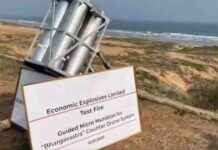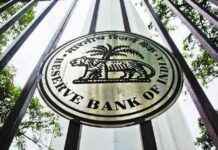Zoho CEO Sridhar Vembu Issues Warning on US Trade Inflation
In a recent statement, Zoho founder Sridhar Vembu raised concerns about potential economic repercussions for India amid the US’s push for balanced bilateral trade and the threat of reciprocal tariffs. Vembu highlighted the current trade dynamics, where India exports software services to the US while importing consumer goods from China, leading to a surplus with America that is offset by a deficit with China.
Vembu emphasized the need for India to diversify its imports, including items such as iPhones, GPUs, LPG, nuclear plants, fighter jets, whiskey, and more from the US to bring equilibrium to bilateral trade. However, this adjustment could lead to challenges for India’s current account deficit unless domestic production capabilities are rapidly expanded.
Trade Dynamics and Imbalances
Following the onset of the pandemic, India’s trade surplus with the US has seen significant growth, nearly doubling from $17.30 billion in 2019-20 to $35.33 billion in 2023-24. This surge in surplus has been accompanied by notable shifts in the export portfolio. On the other hand, India’s trade deficit with China reached $85.1 billion in the fiscal year 2024, with imports from China rising by 9.8% year-on-year between April and October 2024. China continues to be India’s primary import source, with imports valued at $65.89 billion during the same period.
US Trade Policy and Concerns
US President Donald Trump has been vocal about addressing trade imbalances with India, emphasizing the need for reciprocal tariffs. Trump pointed out India’s high tariff rates on various US goods, citing examples of exorbitant tariffs that hinder American exports to India. He highlighted the significant trade deficit of nearly $100 billion between the US and India, underscoring the necessity for negotiations to rectify longstanding disparities.
Trump expressed his commitment to establishing a level playing field in trade relations with India, aiming to bridge the deficit through increased exports of oil and gas. The President’s remarks underscore the urgency of addressing trade issues to foster mutually beneficial economic partnerships between the two nations.
Expert Insights and Recommendations
In response to the escalating trade tensions, experts suggest that India must proactively diversify its import sources and enhance domestic manufacturing capabilities to mitigate potential risks associated with trade adjustments. By broadening the import base and bolstering local production capacities, India can navigate the evolving trade landscape and minimize the impact of inflation stemming from changes in trade dynamics.
Vembu’s cautionary statements serve as a reminder of the intricate interplay between global trade policies and their implications for individual economies. As India navigates the challenges posed by shifting trade patterns and tariff pressures, proactive measures and strategic planning will be essential to safeguarding the country’s economic interests and promoting sustainable growth in the face of evolving international trade dynamics.























